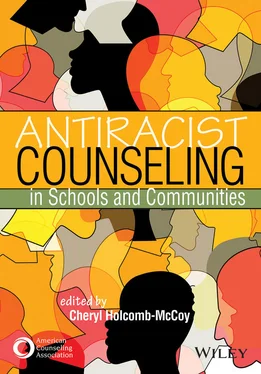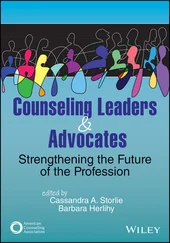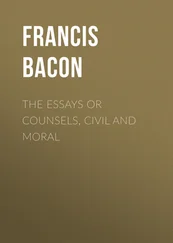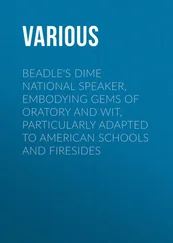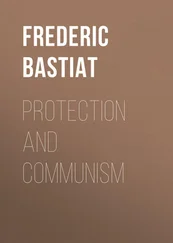CHAPTER 2
Decolonizing the Counseling Canon
Ahmad R. Washington, Janice A. Byrd, and Joseph M. Williams
In the wake of the unrepentant dehumanization and gratuitous murders of Ahmaud Arbery, Breonna Taylor, Sandra Bland, Tamir Rice, and others by members of law enforcement and rogue white vigilantes, the American Counseling Association (ACA) disseminated a position statement denouncing racism and professing its commitment to fighting white supremacy and anti-Black racism (ACA, 2020). Specifically, ACA reiterated its expectation that all counselors representing all subspecialties (e.g., school counseling, addictions, clinical mental health) embrace the ideal of social justice and engage in antiracist advocacy and reform efforts. In part, the statement read, “Racism, police brutality, systemic violence, and the dehumanizing forces of oppression, powerlessness, and White supremacy have eroded the very fabric of humanity which ideally binds our society together” (ACA, 2020, para. 2). Although ACA’s statement represents a promising step in the right direction, what cannot be overlooked is the counseling profession’s historical obliviousness and lack of meaningful and sustained attention to anti-Black racism (Washington & Henfield, 2019).
ACA’s effectiveness in achieving its ultimate mission depends, first and foremost, on how it theorizes the problem of anti-Blackness. The extant counseling literature reveals that the current discourse regarding social justice counseling evolved out of a clear need to name the ethnocentrism and cultural encapsulation throughout the profession writ large (Smith, 2015). Lance C. Smith and others (e.g., Holcomb-McCoy, 2004; Sue & Sue, 2019; Suite et al., 2007) have succinctly charted this evolution and emphasized the inherent limitations, blind spots, and shortcomings of previous iterations of cross-cultural considerations in counseling. As instrumental as these writings on the subject have been, we believe that virtually all dominant counseling ideologies and praxes (e.g., cognitive and behavioral therapies) and even theories of human/group subordination often considered radical (e.g., traditional feminist theory) do not adequately describe the essential and constitutive elements of anti-Blackness in our society. In this chapter, we submit our thesis, which is unlike intrapsychic theories of helping (e.g., cognitive behavioral approaches) or theories of cultural difference (e.g., multiculturalism) or pragmatic reform to foster assimilation (e.g., social justice). We propose a decolonial analytical framework that more effectively brings into relief the Manichean dialectic (meaning dichotomous and routinely and ritualistically antagonistic) that produces social death that includes gratuitous violence (Patterson, 1982; Vargas, 2010).
For Orlando Patterson, slavery, as a form of social death, consists of three constitutive elements. By accentuating the psychological and sociological facets of slavery and social death rather than the idea that slavery is primarily about economic exploitation, Patterson helps us understand how Black people continue to be subjected to a form of antagonism that exceeds economic exploitation and disenfranchisement. Social death entails three constitutive components:
1 Gratuitous violence—Black people are vulnerable to wanton physical violence, violence that is not contingent on the commission of a crime or an unwillingness by Black people to conform or acquiesce to the dictates of a particular hegemonic social framework (e.g., going on a run, shopping at the grocery store).
2 Natal alienation—Black people’s familial arrangements are habitually disregarded, and Black interior social life is always subject to overbearing surveillance and the intentionally intrusive encroachments of the state (e.g., murderous no-knock warrants, the prison industrial complex).
3 General dishonor—Black people are routinely subjected to blatant and egregious disregard and disrespect without the slightest consideration or hesitation, evidenced in, for instance, a general refusal to accept and respect Black people’s traditions (e.g., names, color, forms of Black cultural production).
Our utilization and reliance on Patterson’s (1982) work, invoked here and throughout this chapter, represents an intentional desire to bring a foundational antagonism—social death—into sharper relief. In other words, Patterson’s conception provides an unfiltered analytic lens through which we better understand the forms of violence (e.g., gratuitous violence, natal alienation, general dishonor) that saturate the Black body as a consequence of European expansion and imperialism, a project called modernity . Furthermore, we submit that modernity and the legacies of modernity are inextricably tethered to a humanistic logic of white supremacy that proliferated during a time commonly referred to as the period of European enlightenment.
Although counselor educators have emphasized the criticality of understanding how the period of European enlightenment informs contemporary counseling epistemologies and dominant orientations toward the therapeutic encounter (e.g., the client-counselor dyad) and revered research practices (e.g., researcher objectivity), this emphasis often ignores or evades an engagement, whatsoever, with the myriad forms of violence enacted on the Black body in this process. For instance, although Hansen (2006) went to great lengths to illuminate the epistemologies that characterized modernity and European enlightenment before contrasting these epistemologies with those associated with later scientific paradigms, like postmodernity, Hansen ignored how dominant theorists and knowledge claims associated with modernity and European enlightenment were transfixed on the Black subject. Unfortunately, Hansen’s characterization almost completely occludes any theorization of the utility and fungibility of the Black body in the formation of a world-altering system of knowledge claims that made the modern colonial world we occupy come into formation (Ani, 1994; Castro-Gómez & Martin, 2002; Horne, 2020; Morrison, 2017).
Our engagement with discourses on colonization and decolonization is grounded in a body of interdisciplinary Black critical thinking, from within the humanities and social sciences in particular, that examines how the gratuitous and mundane nature of colonial violence impinges on the psychic and social-emotional well-being of the Black subject. Specifically, Fanon’s (1963, 2008) revolutionary and incisive ideas on the sociogenetic etiology of Black suffering and Black self-alienation, a phenomenon often distilled into more palatable phraseology (e.g., internalized racism), are integral to the tapestry of decolonial counseling epistemologies and practices we employ vis-à-vis the Black body as it is understood within the context of enduring forms of coloniality (McKittrick, 2015; Wynter, 2003). Rather than merely highlighting and celebrating differences and cultural identities or championing more equitable access to marginalized groups, as is often the case in multicultural counseling and social justice counseling discourses, our amalgam of decolonial counseling epistemologies and practices resembles Joseph’s (2015) orientation to clinical work. Our ideas on a decolonial theory of counseling can best be understood as a conscious effort to highlight a reoccurring and ubiquitous trend in counseling discourses, specifically the
inattention to the complicit influences of colonial and imperial projects on the practices and technologies of dehumanization, taxonomization, and the establishment of human hierarchies to rationalize violence through the implementation of racial and eugenic rationale … but also the historical, political, and social practices that were developed to achieve oppression and exploitation. (Joseph, 2015, p. 1021)
Читать дальше
